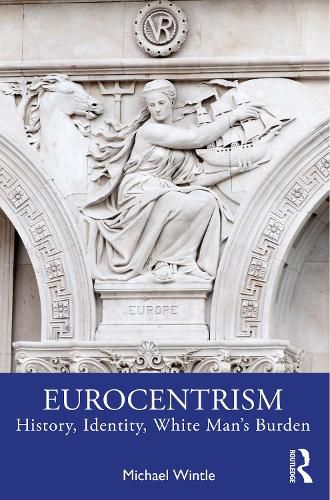Readings Newsletter
Become a Readings Member to make your shopping experience even easier.
Sign in or sign up for free!
You’re not far away from qualifying for FREE standard shipping within Australia
You’ve qualified for FREE standard shipping within Australia
The cart is loading…






This book raises awareness of Eurocentrism’s enormous impact and shows how, over the course of five centuries, Eurocentrism has extended its power across the globe.
In the twenty-first century, Eurocentrism’s hegemony remains powerful. By exploring a wide range of sources including Eurocentric maps and images, historiography, and Rudyard Kipling’s White Man’s Burden, Wintle uncovers Eurocentrism’s gradual evolution and reveals the ways in which it functions at both seen and unseen levels. Taking a thematic and then empirical approach, Eurocentrism offers a detailed and comprehensive discussion of Eurocentrism’s problems and dangers, pays special attention to the work of Samir Amin and James Blaut and applies notions garnered in the book to discuss Eurocentrism within the context of the twenty-first-century European Union. This study questions Eurocentrism’s function, its history, and its importance, providing a fresh insight into one of the world’s most complex and powerful cultural phenomena.
With its multi- and interdisciplinary analysis, this book is an indispensable tool for both scholars and students concerned with modern history, politics, visual culture and political geography.
$9.00 standard shipping within Australia
FREE standard shipping within Australia for orders over $100.00
Express & International shipping calculated at checkout
This book raises awareness of Eurocentrism’s enormous impact and shows how, over the course of five centuries, Eurocentrism has extended its power across the globe.
In the twenty-first century, Eurocentrism’s hegemony remains powerful. By exploring a wide range of sources including Eurocentric maps and images, historiography, and Rudyard Kipling’s White Man’s Burden, Wintle uncovers Eurocentrism’s gradual evolution and reveals the ways in which it functions at both seen and unseen levels. Taking a thematic and then empirical approach, Eurocentrism offers a detailed and comprehensive discussion of Eurocentrism’s problems and dangers, pays special attention to the work of Samir Amin and James Blaut and applies notions garnered in the book to discuss Eurocentrism within the context of the twenty-first-century European Union. This study questions Eurocentrism’s function, its history, and its importance, providing a fresh insight into one of the world’s most complex and powerful cultural phenomena.
With its multi- and interdisciplinary analysis, this book is an indispensable tool for both scholars and students concerned with modern history, politics, visual culture and political geography.